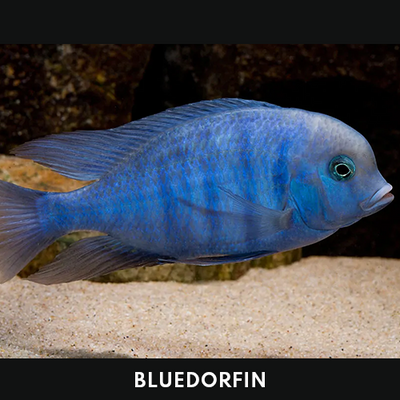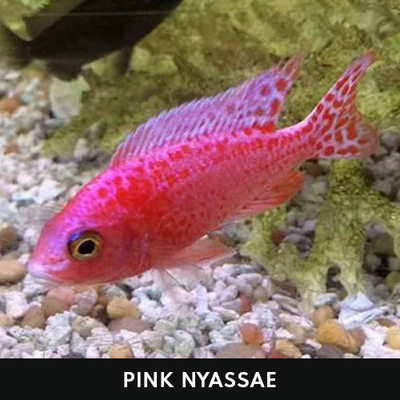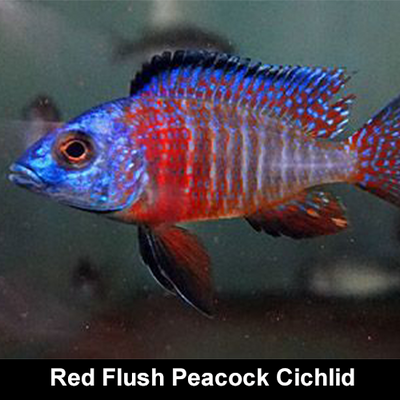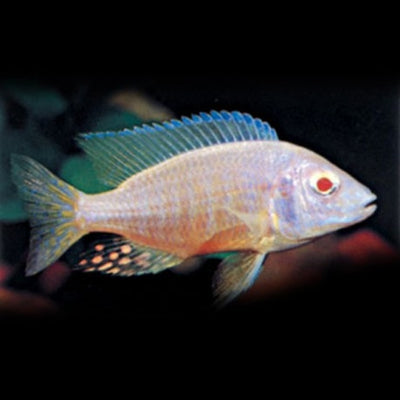Aulonocara rubescens, commonly known as the Ruby Red Peacock, is a species of cichlid native to Lake Malawi in East Africa. Here's some information about its pH, temperature, temperament, and maximum size:
-
pH: Aulonocara rubescens prefers alkaline water conditions. The ideal pH range for this species is typically between 7.8 to 8.6.
-
Temperature: Ruby Red Peacocks thrive in warm water temperatures. The recommended temperature range for this species is between 76°F to 82°F (24°C to 28°C). Keeping the water within this range helps maintain their health and well-being.
-
Temperament: Aulonocara rubescens is generally peaceful compared to many other cichlid species from Lake Malawi. However, they can display some territorial behavior, especially during breeding. It's recommended to keep them in groups with plenty of space and hiding spots to minimize aggression. They can be kept in a community setup with other Lake Malawi cichlids of similar size and temperament.
-
Maximum size: Aulonocara rubescens is a relatively small to medium-sized cichlid species. Adult individuals typically reach a maximum size of around 4 to 6 inches (10 to 15 centimeters) in length, with males being slightly larger and more colorful than females.
Ruby Red Peacocks are known for their stunning colors, with males exhibiting vibrant red hues and females displaying more subdued colors. They are sexually dimorphic, with males typically being larger and more colorful than females.
Feeding Aulonocara rubescens is relatively easy, as they are omnivorous and accept a variety of foods. They can be fed high-quality cichlid pellets or flakes supplemented with occasional live or frozen foods like brine shrimp, bloodworms, or daphnia.
Maintaining excellent water quality, providing appropriate tank decor and hiding spots, and offering a balanced diet are essential for the health and well-being of Ruby Red Peacocks in captivity. Regular water changes and monitoring of water parameters are also important to ensure optimal conditions for these beautiful cichlids.






